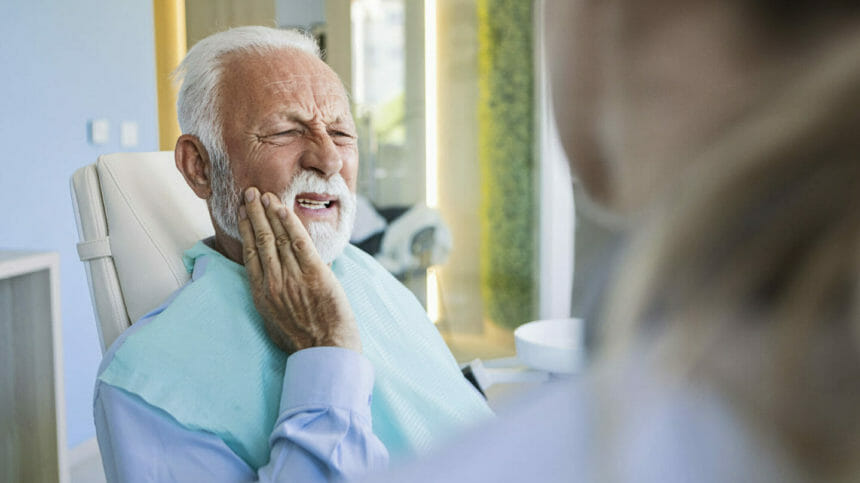
When patients become eligible for Medicare coverage, restorative dental care immediately falls and tooth loss increases, a new study from Harvard University and Brigham and Women’s Hospital has found.
The researchers analyzed national data from the Medical Expenditure Panel Surveys from 2010 to 2019, examining changes in dental insurance and oral health care immediately after respondents became eligible for Medicare. Survey respondents included community-dwelling adults aged between 50 and 85 years.
‘Immediate’ drop in dental services
There were immediate and long-term drops in dental services after patients turned 65 years of age and enrolled in traditional Medicare or Medical Advantage, investigators found. Among the more than 97,000 survey respondents, there was a steep decline in the percentage of beneficiaries receiving restorative dental care.
Although the number of annual dental visits didn’t change, visits for restorative procedures such as fillings or crowns decreased by 8.7%. What’s more, there was a nearly 5 percentage point increase in the number of people who lost all their teeth.
A drop in oral health care can have dire health consequences, investigators said. Loss of all teeth, for example, can put older adults at higher risk for poor nutrition, lower quality of life, frailty and cognitive impairment.
Low insurance rates
“Older adults have the lowest rates of dental insurance in the U.S. and cost is a major barrier for many in seeking dental care,” said Lisa Simon, MD, DMD, of the Brigham’s Department of Medicine. “We know that Medicare, by covering medical services, improves health outcomes and reduces racial health inequities among older adults, but it has the exact opposite effect for dental care.”
Traditional Medicare typically does not cover dental services. Medicare Advantage plans coverage varies. In addition, federal efforts to expand Medicare dental coverage have not been successful, according to the authors.
An opportunity to improve coverage
“Without dental coverage for adults who are eligible for Medicare, we are seeing a rise in loss of teeth after age 65 among nearly 1 in 20 adults, which represents millions of Americans,” Simon reported. “Our findings capture the magnitude of the problem but also point to the opportunity to improve oral health care access and outcomes, should policymakers expand Medicare coverage to include dental services.”
The study was published in Health Affairs.
Related articles:
Tooth survival after root canal varies widely across U.S. regions
Unbrushed teeth may be a leading cause of pneumonia in bedridden patients
Genetic risk of teeth and gum problems tied to declining brain health



